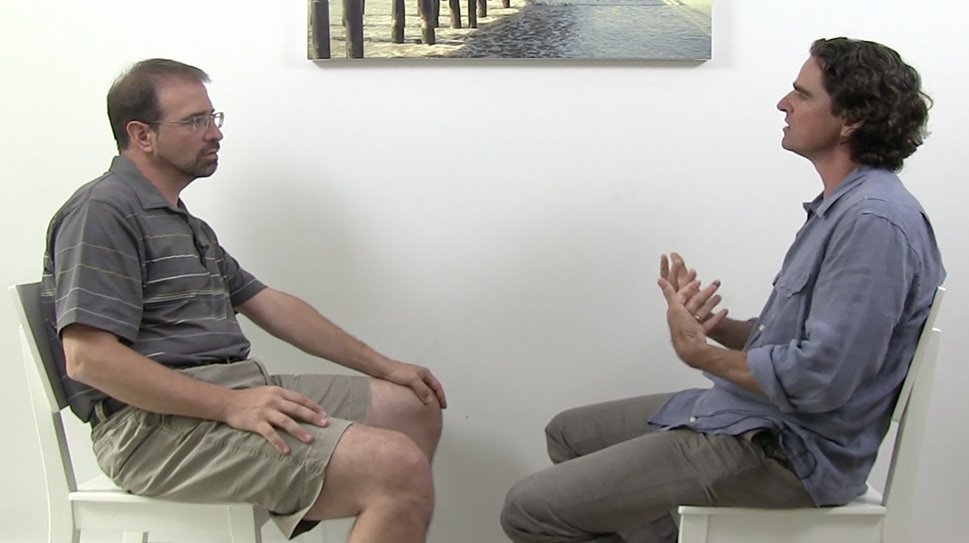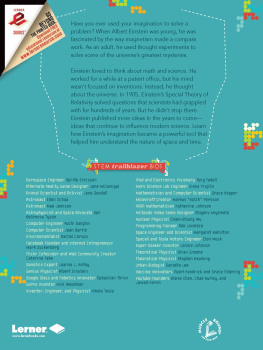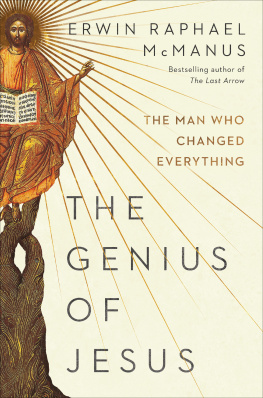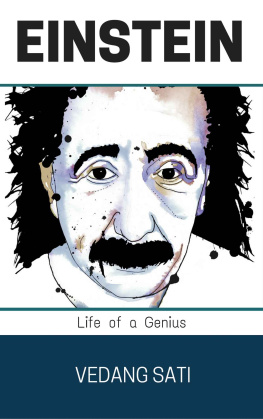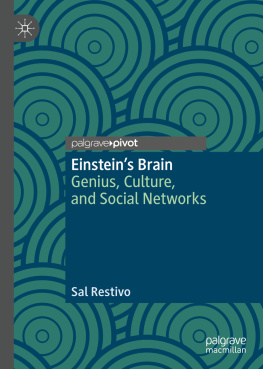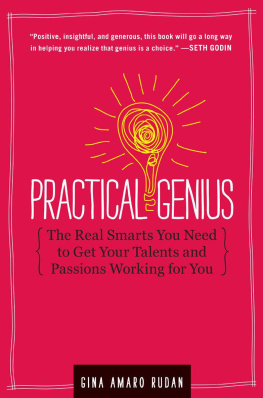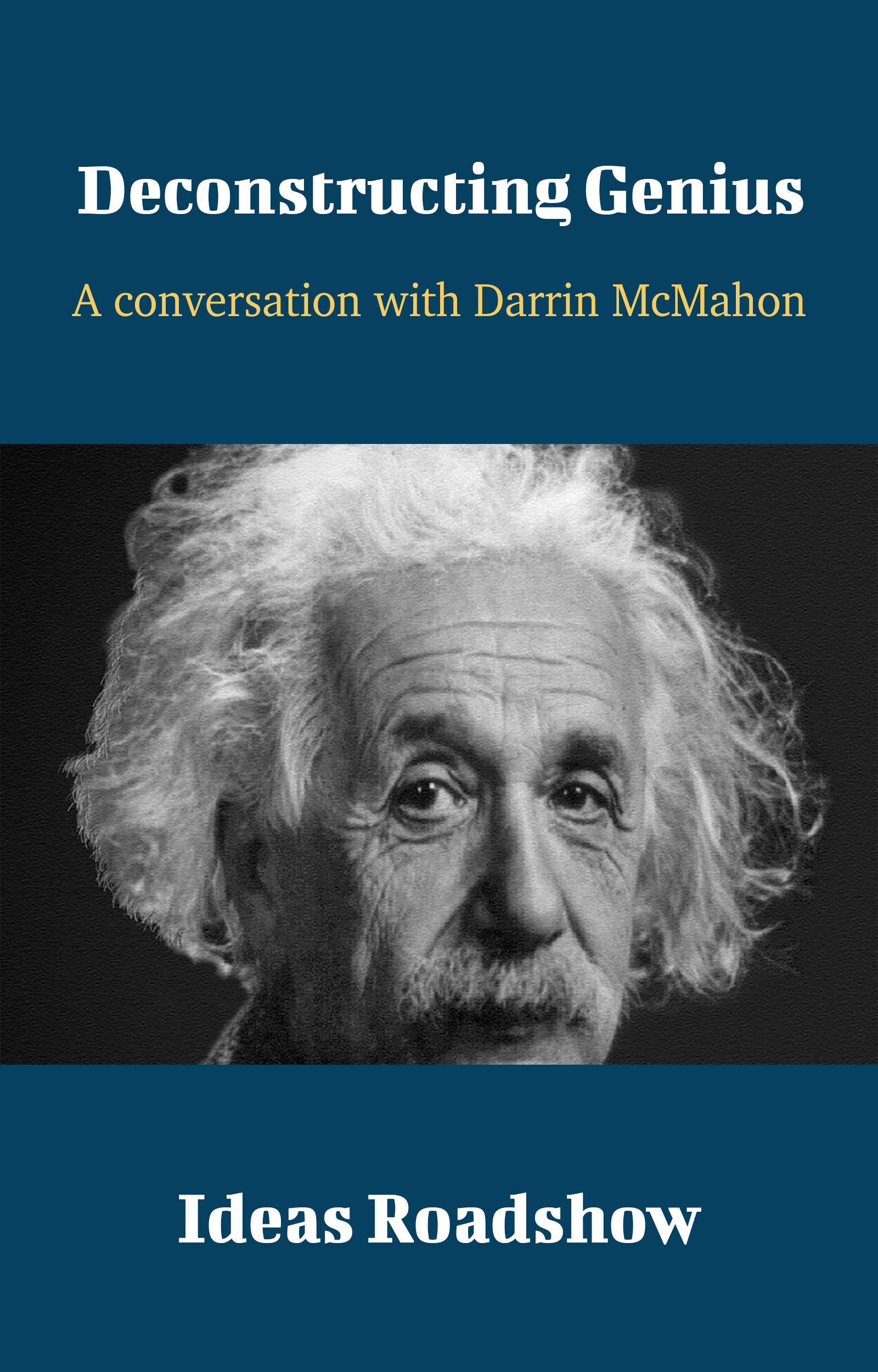The contents of this book are based upon a filmed conversation between Howard Burton and Darrin McMahon in Long Island, NY, on August 12, 2013.
Introduction
Something to Declare
In what is unquestionably the most memorable line ever uttered to a customs official, Oscar Wilde famously claimed, upon arriving in New York in 1882, I have nothing to declare but my genius.
Literary scholars are quick to point out that the evidence for Wilde actually having uttered this celebrated phrase is disappointingly thin, but theres little doubt that its the sort of thing that he very well might have said. Years later, for example, we have considerably more certainty that he confided to his friend Andr Gide, that: Ive put all my genius into my life; Ive only put my talent into my works.
So whether or not Wilde actually overwhelmed American border officials with his wit is almost beside the point: a notorious self-promoter, he clearly made a habit of publicly proclaiming himself a genius throughout his life. But was he?
Well, opinions naturally differ. Perhaps a more interesting question is, What do we mean by genius, anyway?
Shedding light on that, among related issues, is the task Darrin McMahon has set himself in his book, Divine Fury: A History of Genius. It is hardly a straightforward mission, but one which naturally resonates with someone who wrote a uniquely penetrating work on the history of happiness that successfully threaded together a wide range of people and ideas from classical philosophy to the modern day.
Welcome to the world of the intellectual historian.
One of the reasons why its difficult to answer a question like, What is it that you do? is in part because I became an intellectual historian largely because I couldnt decide what I wanted to do. I loved philosophy, religious studies, literature, classics, all these different fieldsand pursuing intellectual history gave me a way where I wasnt forced to choose between them: I could put all these things together. When you study a big meaty idea like genius or happiness or whatever it might be, its going to find its way out in so many different places. Looking at the evolution of an idea like this involves going down a lot of paths and, to me, thats fun.
Intriguingly, intellectual historians like Darrin dont always start their projects with visions of elaborate, interconnected networks through time and space dancing in their heads. Sometimes, it just happens.
I was trained as an 18th century historian and Im naturally attracted to pivotal ideas that emerged in the 18th century. I was aware of the fact that genius becomes a cultural ideal in the 18th centurythats fairly common knowledge. I suppose on one level I thought that I was going to write a book about the emergence of the genius as a new model of the highest human type in the 18th century and keep the scope somewhat restricted.
Thats the fulcrum of the book and thats really the fulcrum of all my work, yet the more I got into it, the more I realized that I needed to go back further, much further. It seemed silly to stop the story just as it was really getting interesting.
And were off: from Socrates daimon to Augustus paternalism, Napoleonic presumptuousness to Nazi propaganda, Romantic mythologies to genius relics, McMahon slices and dices his way through an exceptionally broad swathe of Western history to demonstrate how the cult of genius has been used, abused and often confused.
Take intelligence. That our modern conception of genius represents a type of superhuman smartness is hardly a newsflash, but what is decidedly more subtle and intriguing is how the very notion of assessing intelligence was inextricably related to the development of our contemporary social and political structures.
When you attack the notion of blood aristocracy, or when you dismiss the notion that tradition and the way things have always been is the arbiter of the way that things should be, that creates a problem: how do you divide human society? How do you distinguish the better from the worse or the leaders from the followers?
What happens is that intelligence often emerges as the deciding factor, or what Americans often call merit. And that immediately raises the problems of how you define intelligence, how you measure it, and so forth.
But even more than its standard image of the acme of intelligence, to Darrin the advent of the genius figure represented nothing less than a universal human longing.
This is really the main focus of the book: the need for human beings to marvel in awe and wonder. That very basic human need had been fulfilled for centuries by religion. All human beings had guardian saints and we believed in apostles and prophets, and there were figures in the world who stood between us ordinary mortals and whatever lies beyond us, whatever is higher than us. And those figures acted as intercessors, as intermediaries. Its very clear to me that the genius filled many of those functions.
And now? What room, if any, is there for genius in these modern, sceptical, officiously egalitarian times?
As Darrin views it, there is a paradox of sorts: our overhyped age is drowning in geniuses, yet one frizzy-haired figure reigns supreme.
On one level genius is everywhere. I have a couple pages at the end of the book where I talk about how theres a whole self-help literature now about how, You too can be a genius!, Learn to think like Leonardo! and so on.
We use the word genius with total abandon; we use it for football coaches, for CEOs, for good music teachers, for the person who lives down the street and has a good music collection, and so on.
Weve democratized genius so that we have geniuses everywhere. But when you do that, the single exceptional being cannot exist. When I ask people to name a genius in the postwar world other than Einstein, I almost always get a pause but then eventually theyll come up with their own personal playlist of their favourite individuals from human history. Einstein is the last iconic genius.
It ends with Einstein, then.
It could certainly be worse. And most definitely has been.
The Conversation
